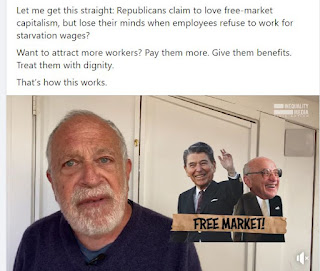
Yes, the politicians are no longer the same as the great mass of working class voters. They are rich or educated or both. Even in the UK, the labor party has no people that used to labor.
The various points are brought about in historical context. Yes, the rule of the masses has been a concern since Greek times.
One item I distilled out of this in my mind is that the average voter has to make some connection to the candidate in some manner. Trump managed this, Hillary did not (although she certainly got all the liberals, minorities etc. She was not feared by the voters that voted her. ) Conspiracies are not covered in this book, so all that surrounding Trump and distrust of Hillary is not covered. So we are left with this bond that the voter has to a like-minded candidate. The average voter does not seem overly concerned with the campaign promises ("they sounded good") but rather a distrust of politicians in general. Distrust of the elite is covered well. Distrust of "big government" not so much.
A bit on the academic side as far as the writing ( I would condense it a bit), I managed to get what I needed by grasping the main topic of each chapter: Distrust, Destruction, Towards Post-Populism.
There is an index if you need to keep it for reference. It is slightly on the academic/global side, so the coverage of the Trump era and the things leading to it (McCarthyism etc.) that might be labeled populist is rather a minor topic. This has the big picture.
The analysis of the voter from a journalistic or social psychology perspective is minimal.
Another side the books fails to capture is the current attempt to sidetrack the democratic process in the US state level control of elections. It could not have been included as it happened past 2020. But the claim is about populist movements supporting democratic elections in general. That may be more of a European trend.

